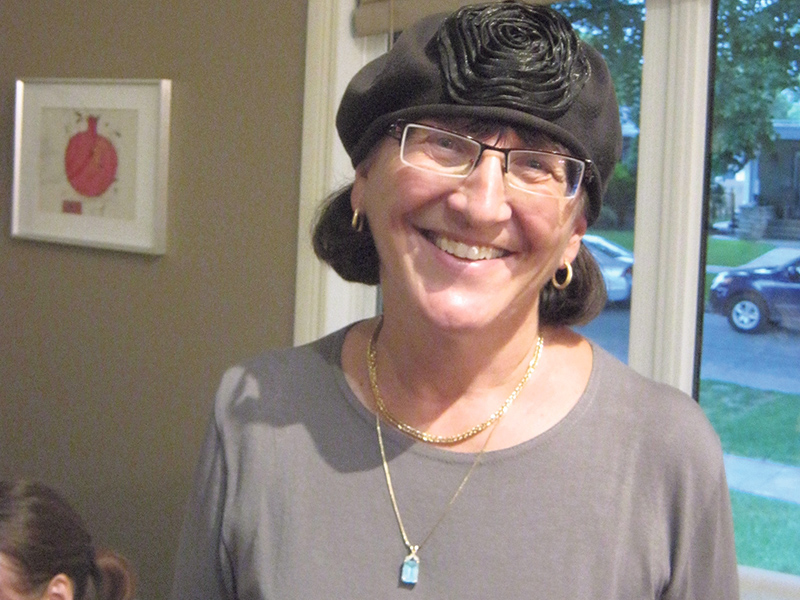So how does an Orthodox Jewish woman from Cleveland become the director of a group called Christian Friends of Israel?
“I fell into it,” says Sondra Oster Baras.
Speaking to a largely Jewish gathering of the group Winnipeg Friends of Israel July 12, Baras said she’s been a longtime advocate for Jewish communities in the West Bank, where she’s lived for some 30 years.
“I met a Christian family in the mid-1990s who were visiting our area,” she said. “They were so excited about what I did for them that they asked me to help start this new organization, Christian Friends of Israel Communities [CFOIC Heartland].”
Baras has been its director since 1995, when it was established as a Christian response to the Oslo accords. It supports Jewish communities in what it refers to as Judea and Samaria, which it describes as the heartland of biblical Israel.
“We work with Christians and Christian organizations all over the world,” Baras said. “When Christians come to Israel, we reach out to them and arrange tours of Judea and Samaria. We work to build relationships between Christians and Jewish communities [there].”
Baras was in Winnipeg on a North American tour to raise funds from Christians for projects such as senior citizen programs, daycare centres and playgrounds in these Jewish communities.
In her Winnipeg presentation, Baras described an idyllic life for Israeli families who live in these towns. “Our communities are beautiful places to live. There is a real sense of community. We all know our neighbours. We care about each other,” she said.
“For a lot of the Christian groups we host, our communities give them a sense of nostalgia for middle America in the 1950s, when people had a strong sense of family and community.”
She said that contrary to western media reports, the 400,000 Israelis in Judea and Samaria aren’t all nationalist religious American Ashkenazim. Half are secular Israelis, and the population reflects the gamut of Israeli society.
Baras’ own love of Israel was fostered growing up in a religious Zionist home in Cleveland. While still a young teen, she decided to make aliyah.
She visited Israel for the first time just after the Six Day War, and she commented on the sense of euphoria in the country, contrasting it with the atmosphere of doubt and disillusionment when she returned after the Yom Kippur War. She said the latter conflict sparked both the creation of Peace Now and the Gush Emunim movement.
“All of us in Israel want peace,” she said. “The problem with Peace Now is the word ‘now.’ The majority of Israelis have come to realize that peace – and two states for two peoples – is a long way off. We have seen what unilateral concessions have achieved for us. More terrorism.”
She said she was inspired by the Gush Emunim movement to resettle the Jewish heartland, noting the movement wasn’t government-directed, but grew spontaneously.
A few months after the Six Day War ended, when Israel was still offering to return all the newly acquired land in exchange for peace and recognition, a group of Israelis booked a hotel in Hebron to celebrate Pesach, then refused to leave.
“The government couldn’t very well be seen to be evicting Jews from Hebron,” she said. “Hebron is near the Tomb of the Patriarchs, which Jews had been unable to visit while the area was under Jordanian rule. Hebron has a Jewish history going back 4,000 years.”
Around the same time, people whose families had been driven from the Etzion bloc of settlements by the Jordanians reclaimed that area southeast of Jerusalem.
Baras was inspired to move to Samaria by the young Israelis who in 1975 defied the government and established a new community near Nablus (formerly biblical Shechem). “I was in Israel as a student at that time,” she recalled. “It was amazing what these young Israelis were trying to do. It was late 20th-century Zionism in action.”
She and her family made aliyah in 1984.
